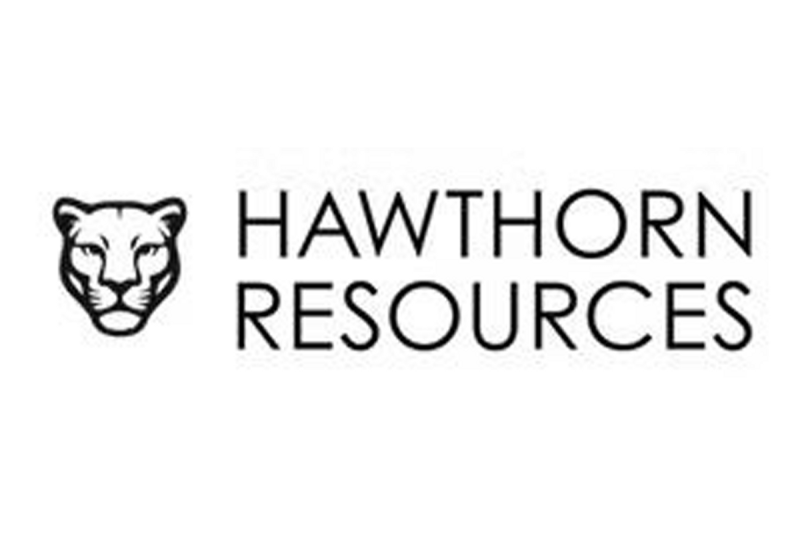
 Metals Australia (MLS:AU) has announced Drilling of N.T. Copper-Gold Targets Set to Begin
Metals Australia (MLS:AU) has announced Drilling of N.T. Copper-Gold Targets Set to Begin
Download the PDF here.

 Metals Australia (MLS:AU) has announced Drilling of N.T. Copper-Gold Targets Set to Begin
Metals Australia (MLS:AU) has announced Drilling of N.T. Copper-Gold Targets Set to Begin
Download the PDF here.

 Brightstar Resources (BTR:AU) has announced Maiden Underground Ore Reserves Underpins FY26 Production
Brightstar Resources (BTR:AU) has announced Maiden Underground Ore Reserves Underpins FY26 Production
Download the PDF here.


Randy Smallwood, president and CEO of Wheaton Precious Metals (TSX:WPM,NYSE:WPM), shares his updated thoughts on the gold and silver markets.
He also discusses Wheaton’s project pipeline and the company’s hunt for more assets.
Securities Disclosure: I, Charlotte McLeod, hold no direct investment interest in any company mentioned in this article.

The country is, once again, divided along partisan lines, this time over the U.S. joining Israel in military strikes against Iran’s nuclear sites, according to a Quinnipiac University poll released Wednesday.
Such was the case on Capitol Hill this week as congressional Democrats railed against the ‘unconstitutionality’ of President Donald Trump ordering attacks on three nuclear sites in Iran, while most Republican lawmakers celebrated his bold move to prevent Iran from obtaining nuclear capability.
Forty-two percent of voters support the U.S. strikes against Iran, while 51% oppose them, according to the Quinnipiac University poll, conducted between June 22-24 in the days after the U.S. strikes on Fordow, Natanz and Isfahan in Iran.
The results were split along party lines, with 81% of Republicans supporting the strikes compared to 75% of Democrats opposing them. Sixty percent of independents opposed the strikes, while 35% supported them.
‘No ambivalence from Republicans on the U.S. bombing of Iran’s nuclear sites. By a large margin, GOP voters give full-throated support to the mission,’ Quinnipiac University Polling Analyst Tim Malloy said in a statement.
Half of voters, at 50%, think the strikes would make Americans less safe, while 42% said they would make Americans safer.
Results were once again split along party lines. Seventy-six percent of Democrats said striking Iran’s nuclear program would make Americans less safe, while 80% of Republicans said it would make Americans safer.
According to the poll, nearly 8 in 10 voters are either very concerned, 44%, or somewhat concerned, 34%, about the U.S. getting dragged into war with Iran. Only 22% of voters are not concerned.
‘American voters, most of whom are not supportive of the country joining in the Israel-Iran conflict, are extremely troubled by the possibility that involvement could metastasize and draw the U.S. into a direct war with Iran,’ pollster Malloy said.
Forty-two percent of voters think the U.S. is too supportive of Israel, while 45% say support for Israel is about right. Only 5% say the U.S. is not supportive enough.
The percentage of voters calling the U.S. too supportive of Israel is at an all-time high since Quinnipiac University first posed the question to registered voters in January 2017. The percentage of voters calling the U.S. not supportive enough is an all-time low since then, the poll reveals.
Half of voters, 50%, support Israel’s military strikes against nuclear and military sites inside Iran, while 40% oppose them. Eighty percent of Republicans support them, while 60% of Democrats do not.
The Quinnipiac University Poll included 979 self-identified registered voters nationwide who were surveyed from June 22-24, with a margin of error of plus or minus 3.1 percentage points.
Trump announced the U.S. successfully struck Iran’s nuclear sites Saturday night. Israel had launched a series of coordinated attacks on Iran the previous week, which Iran had retaliated against, prompting the countries to exchange strikes. After the U.S. struck Iran, the Islamist country launched retaliatory attacks on a U.S. air base in Qatar.
The president indicated a ceasefire between Israel and Iran earlier this week, touting a successful mission to hinder Iran’s nuclear sites without engaging the U.S. in an escalatory Middle East conflict.

The Medicaid debate among Senate Republicans continues to rage on, but a new proposal geared toward sating concerns over the survivability of rural hospitals could help to close the lingering fissures within the conference.
Senate Republicans are sprinting to finish their work on President Donald Trump’s ‘big, beautiful bill,’ which is filled with key priorities like making his first-term tax cuts permanent, funding his immigration and border security agenda, and rooting out waste, fraud and abuse across a variety of programs.
But lawmakers are still at odds over changes made in the Senate’s version of the bill to the Medicaid provider tax rate and the effects that it could have on rural hospitals, threatening to derail the legislation near the finish line.
A proposal making the rounds from the Senate Finance Committee obtained by Fox News Digital would create a separate stabilization fund that would go toward aiding and upgrading rural healthcare.
The committee’s proposal would allocate $3 billion annually to states that apply to the program over the next five fiscal years.
But that amount is too low for some senators and far too much for others.
Sen. Susan Collins, R-Maine, has been working on a similar proposal but would prefer a much higher fund of $100 billion. That number is unlikely to pass muster with her colleagues and still isn’t high enough for her.
‘I don’t think that solves the entire problem,’ she said. ‘The Senate cuts in Medicaid are far deeper than the House cuts and I think that’s problematic as well.’
Collins would prefer a return to the House GOP’s proposed changes to the provider tax rate, rather than the Senate’s harsher crackdown.
The Senate changes to the provider tax rate hit close to home for Collins, whose state’s rural hospitals are already in jeopardy because the state of Maine failed to advance its budget in time, leaving roughly $400 million in Medicaid funding that would have gone to rural hospitals in limbo.
‘Obviously any money is helpful. But no, it is not adequate,’ she said.
Indeed, the changes to the Medicaid provider tax rate, which were a stark departure from the House GOP’s version of the bill, angered the Republicans who have warned not to make revisions to the health care program that could shut down rural hospitals and boot working Americans from their benefits.
The Senate Finance Committee went further than the House’s freeze of the provider tax rate, or the amount that state Medicaid programs pay to healthcare providers on behalf of Medicaid beneficiaries, for non-Affordable Care Act expansion states and included a provision that lowers the rate in expansion states annually until it hits 3.5%.
However, Centers for Medicare & Medicaid Services (CMS) Administrator Dr. Mehmet Oz and some Senate Republicans have argued that the provider tax rate is a scam rife with fraud that actually harms rural hospitals more than it helps.
Sen. Rick Scott, R-Fla., was in the same camp, and has argued that the rate should be nixed completely. He has similarly pushed for a separate fund but wasn’t keen on the cost of the current proposal.
‘I don’t know that we need $15 billion,’ he said. ‘But this needs to be run by CMS.’
And others wanted to see more money injected into a stabilization fund.
‘I think $5 billion a year would more than make them whole,’ Sen. Roger Marshall, R-Kan., said.
He contended that, as the only lawmaker who has run a rural hospital, there are only roughly 12 million people on Medicaid in rural America, and that lawmakers should ‘tighten things up’ when it comes to funding the health care program.
He said that being on Medicaid was ‘not the same as having healthcare,’ and added that ‘at best, two thirds of doctors accept Medicaid, and even many of the specialists, when they say they do, they won’t give you an appointment for six months or a year.’
‘Medicaid is not the solution,’ he said. ‘It’s the most broken federal system up here.’

Emil Bove forcefully rejected criticisms that he was President Donald Trump’s ‘henchman’ or ‘enforcer’ during a Senate hearing Wednesday focused on his nomination by Trump to serve as a federal judge.
Bove, a top Department of Justice (DOJ) official vying to fill a lifetime role on the Third Circuit Court of Appeals, said media reports painted a ‘wildly inaccurate caricature’ about him.
‘I am not anybody’s henchman. I’m not an enforcer,’ Bove said, referring to descriptors used in headlines about him. ‘I’m a lawyer from a small town who never expected to be in an arena like this.’
Bove served as a key attorney on Trump’s personal defense team during the president’s four criminal prosecutions. Prior to that, he led drug trafficking and terrorism cases during his decade as a prosecutor in the Southern District of New York.
But Bove’s formidable demeanor and controversial decisions upon joining DOJ leadership, which included dismissing New York City Mayor Eric Adams’ corruption charges and warning of personnel action for FBI employees who worked on Jan. 6 cases, have caused his nomination to the powerful appellate court bench to attract heightened scrutiny.
Capping off a string of reports examining these controversies was a whistleblower claim leveled Tuesday, one day prior to Bove’s nomination hearing.
The whistleblower, Erez Reuveni, a 15-year veteran of the department who was fired this year for perceived insubordination, alleged that Bove warned during an internal meeting that DOJ attorneys might need to say ‘f*** you’ to judges and defy any adverse orders they issue regarding one of Trump’s most provocative maneuvers to deport alleged illegal immigrants.
Senate Democrats, who have widely objected to Bove’s nomination, grilled the nominee over the claim, noting that flouting court orders was unconstitutional and disqualifying. Bove said he has never advised anyone to defy judges’ orders.
‘Did you or did you not make those comments during that meeting?’ Sen. Adam Schiff, D-Calif., pressed.
‘I did not suggest that there would be any need to consider ignoring court orders. At the point at that meeting there were no court orders to discuss,’ Bove said.
Schiff repeated the profane phrase several times, asking if Bove said it in relation to the courts.
‘I don’t recall,’ Bove said.
‘You just don’t remember that,’ Schiff replied incredulously.
Other Democrats pressed Bove on the Adams saga, which had led in February to a handful of high-level DOJ employees resigning in protest of Bove’s order that they dismiss the mayor’s federal corruption charges. A judge ultimately dropped Adams’s charges at Bove’s request, but not before excoriating the DOJ for giving ‘inconsistent’ justifications for wanting to drop the case.
Bove was accused by the ousted lawyers of asking the courts to toss out Adams’s charges in exchange for the mayor’s cooperation with the Trump administration’s immigration policy. Bove denied the allegation when pressed on it.
‘The suggestion that there was some kind of quid pro quo was just plain false,’ Bove said.
Despite Democrats’ concerns, as well as concerns voiced by some defense lawyers who said they have had negative experiences with the nominee, Bove has some loyal supporters. No Republican senators have voiced opposition to him at this stage, a sign that he could eventually be confirmed, albeit narrowly.
In an interview prior to the hearing, Deputy Attorney General Todd Blanche, Bove’s longtime friend and colleague, told Fox News Digital that Bove was a ‘freaking brilliant lawyer.’
Blanche said reports that Bove was unqualified were ‘distorted’ and that installing him on the Third Circuit was a ‘no-brainer.’

A former jewelry store manager in the United Kingdom was sentenced to 28 months in prison after posting selfies wearing stolen merchandise and sending them to her coworkers, Humberside Police said in a statement.
Lucy Roberts, 39, frequently took jewelry home with her during the year she worked at a high-end shop, police said, telling suspicious coworkers she “was conducting work at home and sorting stock for the workshop.” The police statement does not name the store.
It was only when Roberts quit and went on vacation that her colleagues realized where the jewelry went, the statement says. She began sending her former coworkers selfies from a cruise, decked out in items taken from the shop.
“Without a care in the world, dripping in diamonds, thinking she had deceived everybody,” Detective Sgt. Krista Wilkinson said in the police news release.
Police found “thousands of pounds worth of jewelry strewn around in boxes beneath the bed and in cupboards,” after searching her home, the statement says.
In total, Roberts stole more than $170,000 in diamonds, gold, silver, “bespoke jewelry” and cash from her employer, according to Wilkinson.
Police said Roberts initially denied she had stolen any stock from her employer, insisting she had borrowed the some of the jewelry from a coworker and that they planted the other items in her bags, but she later entered a guilty plea for theft by an employee, receiving 28 months in prison.
Roberts was arrested at London’s Heathrow Airport, according to police. They took her into custody after finding her “wearing a substantial amount of stolen jewelry” with more pilfered merchandise in her suitcase, according to the statement.
Body camera footage from the arrest shows Roberts removing more jewelry “as she was escorted through Heathrow Airport … in an attempt to dispose of it,” police added.
The store where Roberts formerly worked said it is “pleased to finally have closure on the matter after several years,” according to the news release.


Hawthorn Resources Corp. (CSE: HWTN) (‘Hawthorn‘ or the ‘Company’) is pleased to announce that it has closed its previously announced subscription receipt (the ‘Subscription Receipts’) offering (the ‘Offering’).
Under the Offering, the Company issued an aggregate of 14,807,315 Subscription Receipts at a price of $0.27 per Subscription Receipt for aggregate proceeds of $3,997,975.05 (the ‘Subscription Proceeds’).
Each Subscription Receipt, upon the satisfaction of certain conditions (the ‘Escrow Release Conditions’) related to the Company’s previously announced proposed acquisition of Stampede Metals Corporation (the ‘Acquisition’) on or before the escrow release deadline of July 31, 2025 or such later date as the escrow agent and the Company agree (the ‘Escrow Release Deadline’), will be automatically converted, without payment of any additional consideration and without any further action on the part of the holder thereof, into a unit (a ‘Unit’), comprised of one post 1:0.75 consolidation (the ‘Consolidation’) common share of the Company and one-half of one share purchase warrant. Each whole warrant will be exercisable to acquire a post-Consolidation common share at a price of $0.40 per share until December 23, 2026, subject to acceleration in the event that the post-Consolidated common shares of the Company trade at or above $0.60 for ten consecutive trading days. If the Escrow Release Conditions are not met by the Escrow Release Deadline, the aggregate Subscription Proceeds will be returned to subscribers without deduction.
President Ralph Shearing, P.Geol. of Hawthorn Resources, commented: ‘With nearly $4 million in financing received, upon completion of our acquisition of the Prince Silver Project, Hawthorn is fully funded to execute on our 2025 exploration priorities. We’re excited to advance the Prince Silver Project — a near-surface CRD deposit with historic production, strong silver-gold-zinc-manganese mineralization identified in over 129 historic drill holes with excellent exploration expansion potential.
In connection with the Offering, upon conversion of the Subscription Receipts into the underlying Units, the Company will pay finders fees of $98,309.98 to eligible registrants assisting in the Offering and issue an aggregate of 420,111 broker warrants (each, a ‘Broker Warrant’), with each Broker Warrant entitling the holder to acquire one post-Consolidated common share of the Company at a price of $0.40 per share for until December 23, 2026.
All securities issued under Acquisition and in the Offering will have a hold period of four months and one day pursuant to applicable securities laws and CSE policy. In accordance with CSE policies, the Company has obtained written shareholder approval for the issuance of the aggregate post-Consolidated common shares to be issued pursuant to the Acquisition and the Offering.
Completion of the proposed Acquisition is subject to a number of conditions, including, but not limited to, completion of the concurrent financing, satisfaction by the parties of all applicable filing requirements pursuant to the policies of the Canadian Securities Exchange (the ‘CSE’), and acceptance and receipt of all applicable regulatory, corporate and shareholder approvals.
About Hawthorn Resources Corp.
Hawthorn is a silver exploration company focused on advancing the Prince Silver Project in Nevada, USA. Mineralization is open in all directions and is near surface. Hawthorn also holds option interest in Broken Handle Project, an early-stage mineral exploration project located southern British Columbia, Canada.
For further information, please refer to the Company’s disclosure record on SEDAR+ (www.sedarplus.ca).
On Behalf of the Board of Directors,
Ralph Shearing, Director, President
Tel: 604-764-0965
Email: info@hawthornresources.ca
Forward-Looking Information
Certain statements in this news release are forward-looking statements, including with respect to future plans, and other matters. Forward-looking statements consist of statements that are not purely historical, including any statements regarding beliefs, plans, expectations or intentions regarding the future. Such information can generally be identified by the use of forwarding-looking wording such as ‘may’, ‘expect’, ‘estimate’, ‘anticipate’, ‘intend’, ‘believe’ and ‘continue’ or the negative thereof or similar variations. Some of the specific forward-looking information in this news release includes, but is not limited to, statements with respect to: completion of the Acquisition and related transactions, completion of the Initial Private Placement, appointments of directors and officers of the Company and regulatory and corporate approvals. The reader is cautioned that assumptions used in the preparation of any forward-looking information may prove to be incorrect. Events or circumstances may cause actual results to differ materially from those predicted, as a result of numerous known and unknown risks, uncertainties, and other factors, many of which are beyond the control of the Company, including but not limited to, business, economic and capital market conditions, the ability to manage operating expenses, dependence on key personnel, and compliance with property option agreements. Such statements and information are based on numerous assumptions regarding present and future business strategies and the environment in which the Company will operate in the future, anticipated costs, and the ability to achieve goals. Factors that could cause the actual results to differ materially from those in forward-looking statements include, the continued availability of capital and financing, litigation, failure of counterparties to perform their contractual obligations, failure to obtain regulatory or corporate approvals, exploration results, loss of key employees and consultants, and general economic, market or business conditions. Forward-looking statements contained in this news release are expressly qualified by this cautionary statement. The reader is cautioned not to place undue reliance on any forward-looking information.
The forward-looking statements contained in this news release are made as of the date of this news release. Except as required by law, the Company disclaims any intention and assumes no obligation to update or revise any forward-looking statements, whether as a result of new information, future events or otherwise.
This news release does not constitute an offer to sell, or a solicitation of an offer to buy, any securities in the United States. The securities have not been and will not be registered under the United States Securities Act of 1933, as amended (the ‘U.S. Securities Act’) or any state securities laws and may not be offered or sold within the United States or to U.S. Persons (as defined under the U.S. Securities Act) unless registered under the U.S. Securities Act and applicable state securities laws or an exemption from such registration is available.
The CSE has neither approved nor disapproved the contents of this press release and the CSE does not accept responsibility for the adequacy or accuracy of this release.

Chris Schwegmann is getting creative with how artificial intelligence is being used in law.
At Dallas-based boutique law firm Lynn Pinker Hurst & Schwegmann, he sometimes asks AI to channel Supreme Court Chief Justice John Roberts or Sherlock Holmes.
Schwegmann said after uploading opposing counsel’s briefs, he’ll ask legal technology platform Harvey to assume the role of a legal mind like Roberts to see how the chief justice would think about a particular problem.
Other times, he will turn to a fictional character like Holmes, unlocking a different frame of mind.
“Harvey, ChatGPT … they know who those folks are, and can approach the problem from that mindset,” he said. “Once we as lawyers get outside those lanes, when we are thinking more creatively involving other branches of science, literature, history, mythology, that sometimes generates some of the most interesting ideas that can then be put, using proper legal judgement, in a framework that works to solve a legal problem.”
It’s just one example of how smaller businesses are putting AI to work to punch above their weight, and new data shows there’s an opportunity for much more implementation in the future.
Only 24% of owners in the recent Small Business and Technology Survey from the National Federation of Independent Business said they are using AI, including ChatGPT, Canva and Copilot, in some capacity.
Notably, 98% of those using it said AI has so far not impacted the number of employees at their firms.
At his trial litigation firm of 50 attorneys, Schwegmann said AI is resolving work in days that would sometimes take weeks, and said the technology isn’t replacing workers at the firm.
It has freed up associate lawyers from doing “grunt work,” he said, and also means more senior-level partners have the time to mentor younger attorneys because everyone has more time.
The NFIB survey found AI use varied based on the size of the small business. For firms with employees in the single digits, uptake was at 21%. At firms with fifty or more workers, AI implementation was at nearly half of all respondents.
“The data show clearly that uptake for the smallest businesses lags substantially behind their larger competitors. … With a little attention from all the relevant stakeholders, a more equal playing field is possible,” the NFIB report said.
For future AI use, 63% of all small employers surveyed said the utilization of the technology in their industry in the next five years will be important to some degree; 12% said it will be extremely important and 15% said it will not be important at all.
Some of the most common uses in the survey were for communications, marketing and advertising, predictive analysis and customer service.
“We still have the need for the independent legal judgment of our associate lawyers and our partners — it hasn’t replaced them, it just augments their thinking,” Schwegmann said. “It makes them more creative and frees their time to do what lawyers do best, which is strategic thought and creative problem solving.”
The NFIB data echoes a recent survey from Reimagine Main Street, a project of Public Private Strategies Institute in partnership with PayPal.
Reimagine surveyed nearly 1,000 small businesses with annual revenue between $25,000 and $50,000 and also found that a quarter had already started integrating AI into daily workflows.
Schwegmann said at his firm, AI is helping to even the playing field.
“One of the things Harvey lets us do is review, understand and incorporate and respond much faster than we would prior to the use of these kinds of AI tools,” he said. “No longer does a party have an advantage because they can paper you to death.”

President Donald Trump took part in a flurry of greetings with world leaders eager to get face time with the U.S. president during his brief stint at the NATO Summit.
Upon arriving, the president was welcomed by Dutch royals — King Willem-Alexander, Queen Maxima, and their daughter Crown Princess Amalia. He became the first president to stay at the king’s palace, Huis ten Bosch Palace.
‘I had breakfast with the king and queen this morning — beautiful people,’ Trump said. ‘I slept beautifully.’
The president said he left The Hague with fonder feelings toward the NATO alliance than when he’d arrived.
‘I came here because it was something I’m supposed to be doing, but I left here a little bit differently,’ Trump said. ‘I left here saying that these people really love their countries. It’s not a ripoff. And we’re here to help them protect their country.’
He participated in photo ops with world leaders from across the political spectrum — friend and foe alike — and received fawning praise from NATO Secretary General Mark Rutte, who likened him to the father of the alliance.
‘Daddy has to sometimes use strong language,’ Rutte said in defense of Trump’s expletive-laden criticism of Israel and Iran for threatening the ceasefire he negotiated.
The president was riding high amid warming relations with the alliance he previously threatened to pull out of. After months of combativeness with Europe over defense spending and liberal policies, Trump praised the alliance for agreeing to his demand to raise its defense spending target to 5% of GDP.
‘Believe it or not, allies have increased spending by $700 billion,’ Trump said in a news conference. ‘his week, the NATO allies committed to dramatically increase their defense spending to that 5% of GDP, something that no one really thought possible.’
Even Spain — the only nation not to agree to commit 5% to defense — got a relatively mild drubbing from the president.
I like Spain. I have so many people from Spain. It’s a great place, and they’re great people. But Spain is … the only country out of all of the countries that refuses to pay. And, you know, so they want a little bit of a free ride,’ he said.
It was certainly a different tone from Vice President JD Vance’s address at the Munich Security Conference.
‘The threat that I worry the most about vis-à-vis Europe is not Russia. It’s not China. It’s not any other external actor,’ Vance said at the time. ‘What I worry about is the threat from within the retreat of Europe from some of its most fundamental values, values shared with the United States of America.’